The Rendez-vous Génome Québec is fully booked!
If you haven’t had the chance to register, please note that you can join the waiting list by sending your contact information to nrenault@genomequebec.com. If any spots become available, we will contact you.
From research to clinical applications: genomics as a springboard for the healthcare of today and tomorrow
23 octobre 2025 – Montreal Science Centre, 2 rue de la Commune Ouest, Montreal
Preliminary program
8:00 Welcome
8:45 Opening remarks – Génome Québec
9:00 Genomic Medicine Sweden: Implementing precision medicine at a national level

Richard Rosenquist Brandell is a Professor and Senior Physician in Clinical Genetics at Karolinska Institutet and Karolinska University Hospital, Stockholm. He also serves as the Director of Genomic Medicine Sweden, a national infrastructure for the implementation of precision medicine.
In his research, he uses cutting‐edge molecular tools, allowing him to identify novel prognostic and predictive biomarkers in hematological malignancies, particularly chronic lymphocytic leukemia. This, in turn, improves patient risk stratification and clinical decision-making. Additionally, he has played a key role in the adoption of clinical whole-genome/transcriptome sequencing for patients with acute leukemia.
Mr. Brandell serves as co-chair of the newly established Precision Omics Initiative Sweden (PROMISE) and is a member of the Nobel Assembly at Karolinska Institutet.
10:00 Integrating new genomic technologies into clinical practice
- Jacques Michaud, Centre hospitalier universitaire Sainte-Justine: Investigating rare diseases using multi-omics approaches
- Amy Turriff, National Institutes of Health: Prenatal cell free DNA sequencing and incidental detection of maternal malignancies
- Philippe Joubert, Institut universitaire de cardiologie et de pneumologie de Québec: New predictive biomarkers in lung cancer: the advent of immunoconjugates
11:00 Break and visit to exhibitors
11:30 Cutting-edge tools for big data: bioinformatics, AI and clinical interpretation
- Vincent Ferretti, Centre hospitalier universitaire Sainte-Justine: The Quebec Genomic Data Center
- Julie Hussin, Montreal Heart Institute: Bridging the gap between genes and heart rhythms
- Brent Richards, Jewish General Hospital: Use of genomics to identify drug targets
12:30 Lunch and networking
1:30 From genomics to drug discovery

Thomas Hudson joined Versant Ventures as a Venture Partner in September 2024, after retiring from his position as Senior Vice President and Chief Scientific Officer at AbbVie. During his eight-year tenure in AbbVie R&D, he led global teams of scientists and clinicians across therapeutic areas to identify potential new treatments for a variety of diseases. Prior to joining AbbVie, Dr. Hudson was the President and Scientific Director of the Ontario Institute for Cancer Research, where he spearheaded the Institute’s work in translational research for the prevention, detection, diagnosis and treatment of cancer.
A Fellow of the Royal Society of Canada and an Officer of the Order of Canada, Dr. Hudson was a pioneer in mapping the human genome. He is internationally renowned for his work in genomics, human genome variation and genetic diseases. Moreover, he has co-authored more than 300 peer-reviewed scientific publications and served as scientific advisor to many public organizations, including Génome Québec.
2:30 Prevention and prediction: optimizing and targeting care
- Simon de Denus, Montreal Heart Institute: Prevalence of actionable pharmacogenetic variants in the Montreal Heart Institute cohort
- Lucy Gilbert, McGill University Health Centre: Innovative genomic Pap test for the early detection of ovarian and endometrial cancer and the detection of hereditary predispositions to five cancers
- Mathias Cavaillé and Jacques Simard, Centre hospitalier universitaire de Québec, Integrating the polygenic breast cancer risk score into clinical practice: Where do we stand?
3:30 Break and visit to exhibitors
4:00 Panel discussion – Towards an integrated vision for genomic medicine in Quebec: Lessons learned and opportunities ahead moderated by Tasha Kheiriddin, Political analyst, columnist and strategic advisor, with:
- Emmanuelle Lemyre, Medical Director, Optilab; Head, Clinical Department of Laboratory Medicine, Optilab Montréal–CHU Sainte-Justine
- Mélanie Martin, Associate Director – Technological Innovation, Medical Biology and Genomics, Institut national d’excellence en santé et en services sociaux (INESSS)
- Philippe Joubert, Clinician-Researcher, Institut universitaire de cardiologie et de pneumologie de Québec – Université Laval
- Jean Latreille, National Director, Direction de la cancérologie, Ministère de de la Santé et des Services sociaux
- Denis Ouellet, Director, Direction des laboratoires et de l’imagerie médicale, Ministère de de la Santé et des Services sociaux
5:00 Closing remarks
Sponsors

Moderator

Tasha Kheiriddin is one of Canada’s most respected political analysts. As a national columnist for Postmedia and a writer for GZERO Media and Radio-Canada, she provides political commentary in both French and English. She is a sought-after speaker and moderator who regularly hosts panels and events on social and political issues, including health and biotechnology.
A law graduate of McGill University, Ms. Kheiriddin began her career in the legal field before moving into media, public affairs and journalism. As a consultant, she provides advice on media training and strategic communications. In July 2025, she was named fellow of the Carleton University Clayton H. Riddell School of Political Management in recognition of her expertise. She also sits on the board of the Montreal Economic Institute.
Speakers

Richard Rosenquist Brandell is a Professor and Senior Physician in Clinical Genetics at Karolinska Institutet and Karolinska University Hospital, Stockholm. He also serves as the Director of Genomic Medicine Sweden, a national infrastructure for the implementation of precision medicine.
In his research, he uses cutting‐edge molecular tools, allowing him to identify novel prognostic and predictive biomarkers in hematological malignancies, particularly chronic lymphocytic leukemia. This, in turn, improves patient risk stratification and clinical decision-making. Additionally, he has played a key role in the adoption of clinical whole-genome/transcriptome sequencing for patients with acute leukemia.
Mr. Brandell serves as co-chair of the newly established Precision Omics Initiative Sweden (PROMISE) and is a member of the Nobel Assembly at Karolinska Institutet.

Thomas Hudson joined Versant Ventures as a Venture Partner in September 2024, after retiring from his position as Senior Vice President and Chief Scientific Officer at AbbVie. During his eight-year tenure in AbbVie R&D, he led global teams of scientists and clinicians across therapeutic areas to identify potential new treatments for a variety of diseases. Prior to joining AbbVie, Dr. Hudson was the President and Scientific Director of the Ontario Institute for Cancer Research, where he spearheaded the Institute’s work in translational research for the prevention, detection, diagnosis and treatment of cancer.
A Fellow of the Royal Society of Canada and an Officer of the Order of Canada, Dr. Hudson was a pioneer in mapping the human genome. He is internationally renowned for his work in genomics, human genome variation and genetic diseases. Moreover, he has co-authored more than 300 peer-reviewed scientific publications and served as scientific advisor to many public organizations, including Génome Québec.
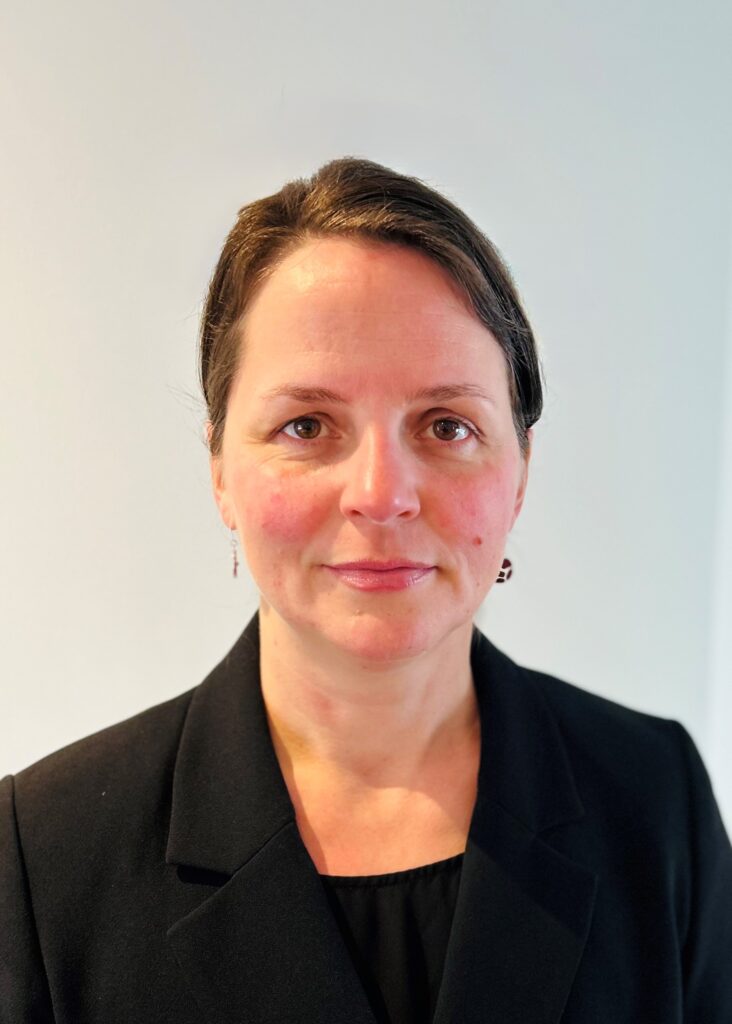
Mélanie Martin works at the Institut national d’excellence en santé et en services sociaux (INESSS) as Assistant Director of the Technological Innovation and Medical Biology and Genomics branch of the Directorate for the Evaluation of Drugs and Technologies for Reimbursement Purposes.
She joined INESSS in July 2015 as a scientific professional and went on to serve as the Scientific Coordinator of the Chronic Disease Screening Unit from 2017 to 2019 and the Primary Practice Improvement Unit from 2019 to 2022. From 2022 to 2024 she worked as the Assistant to the Director of the Office of Methodologies and Ethics.
Throughout her career, she has gained extensive experience in the evaluation of health technologies and interventions.
Mélanie Martin holds a PhD in Microbiology and Immunology and two graduate microprograms–one in Business Administration, Strategic Project Management, and another in Pharmaceutical Product Development.
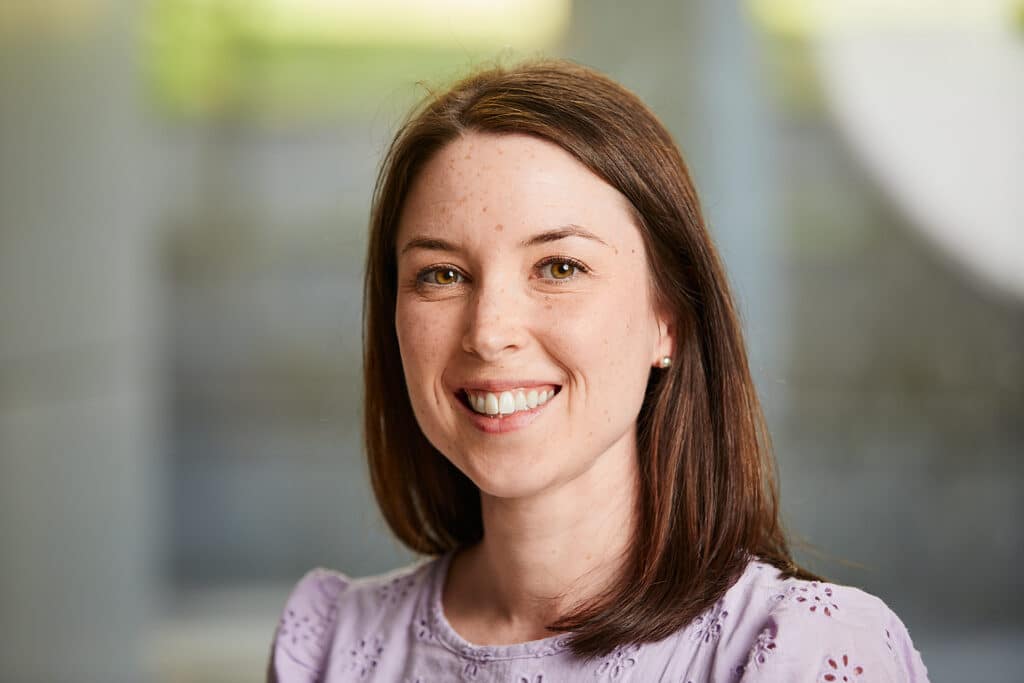
Amy Turriff, ScM, CGC, is a genetic counsellor in the Prenatal Genomics and Therapy Section of the Center for Precision Health Research at the National Human Genome Research Institute (NHGRI) in Bethesda, Maryland, USA. She serves as the project manager for the NIH IDENTIFY study, a multi-Institute research initiative investigating maternal incidental findings from prenatal genomic sequencing. Her research focuses on the psychological and social impacts of living with genetic conditions, patient decision-making, and informed consent.
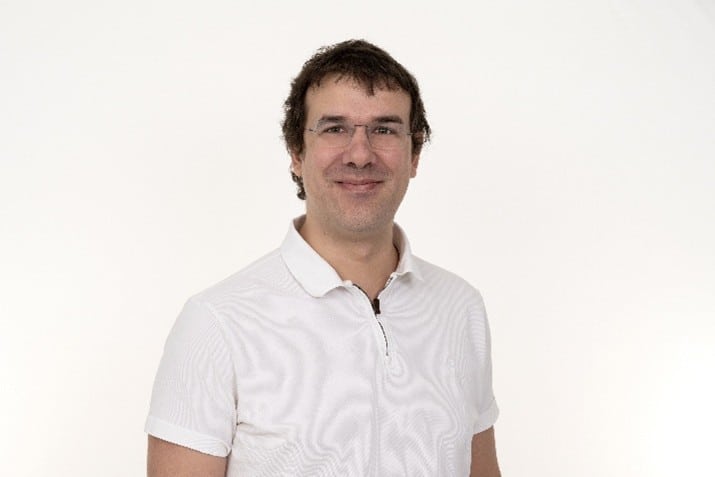
Dr. Mathias Cavaillé is a geneticist specializing in oncogenetics. Since 2023, he has practised at the CHU de Québec – Université de Laval. He trained in medical genetics, more specifically in clinical and molecular oncogenetics, at the Centre Jean Perrin (Clermont-Ferrand, France) and is the former Head of Clinic – Hospital Assistant (2018-2020). Dr. Cavaillé provides complete patient care to children and adults, both in the clinic and in the lab.
From 2022 to 2023, he was the head of consultations and scientific director in oncogenetics at the Centre Jean Perrin, and since 2025 has served as medical director of the oncogenetics department of the CHU de Québec – Université de Laval. In addition, he coordinated the implementation and development of genome-wide analyses in oncogenetics as part of the France Genomic Medicine 2025 Plan on the AURAGEN platform.
After completing his medical training, he obtained a Ph.D. in 2021. He went on to complete two interuniversity diplomas, one in oncogenetics, another in teaching.
Dr. Cavaillé is a clinician-researcher and Assistant Professor of Medicine in the Department of Pediatrics at Université Laval. He has also authored or co-authored 22 publications in peer-reviewed journals. His research focuses on the study of new hereditary cancer risks, ranging from the search for new candidate genes by analysis of gene, exome or genome panels, to the inclusion of polygenic risk scores in the management of patients with hereditary or familial cancer risk.

Simon de Denus is Dean of the Faculty of Pharmacy at Université de Montréal (UdeM), a pharmacist and a researcher at the Montreal Heart Institute (MHI). He holds the UdeM Beaulieu-Saucier Chair in Pharmacogenomics and is Head of Pharmacotherapy at the Beaulieu-Saucier Pharmacogenomics Centre at UdeM. His research has been funded by the Canadian Institutes of Health Research, the Heart and Stroke Foundation and the Fonds de recherche du Québec – Santé, among others, and focuses on cardiovascular and personalized drug therapy.

Philippe Joubert is a thoracic pathologist and researcher at the Institut universitaire de cardiologie et de pneumologie de Québec – Université Laval. He is also an associate professor in the Faculty of Medicine at Université Laval and deputy director of the Department of Molecular Biology, Medical Biochemistry and Pathology.
Mr. Joubert holds the Canada Research Chair in Identification of Diagnostic and Prognostic Markers in Lung Cancer and is a member of the International Association for the Study of Lung Cancer Staging Committee and the co-leader of the Working Group on Molecular and Histological Parameters with Prognostic Impact on Lung Cancer.
His research focuses on lung cancers, specifically the development of predictive and diagnostic biomarkers in adenocarcinomas and neuroendocrine tumors. He currently leads a research team of 10 people, including 6 graduate students. He has authored or co-authored more than 140 scientific articles and three book chapters, including the World Health Organization’s Classification of Lung Tumors.
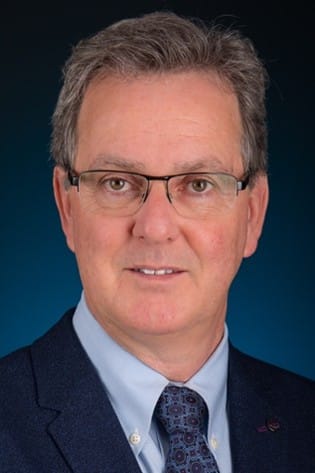
Jacques Simard has been Vice-Dean of Research and Innovation and Professor in the Faculty of Medicine at Université Laval since 1990. He also serves as a senior researcher at the CHU de Québec-Université Laval Research Centre. From 2001 to 2022, he held the Canada Research Chair in Oncogenetics. Mr. Simard has been inducted into the Académie des Grands Québécois–Science, the Canadian Academy of Health Sciences and the prestigious Academy of Science of the Royal Society of Canada. In addition, his discoveries and achievements have been described in more than 530 publications.
In the mid-1990s, his pioneering work led to the discovery of the complete structure of the BRCA2 cancer predisposition gene and advanced our understanding of BRCA1 gene mutations in Canadian families. Since 2001, he has served as Director of one of the largest interdisciplinary and international teams working on the genetic predisposition to breast cancer. He has played a key role in several international studies, for example by spearheading two large-scale international projects: Personalized Risk Stratification for Prevention and Early Detection of Breast Cancer (PERSPECTIVE, 2013–2018) and PERSPECTIVE: Integration and Implementation (PERSPECTIVE I&I; 2018–2024). His work has demonstrated the feasibility and acceptability for women and health professionals of a personalized approach to breast screening based on a woman’s individual risk level and provided evidence in favour of implementing this type of screening at the population level.
For the past twenty-five years, Mr. Simard has been involved in the strategic organization of health research and technology transfer through his participation on many boards of directors of granting agencies (Medical Research Council, Genome Canada), advisory and coordination committees (Health Canada, CIHR, FRQ-S, RQDM/MSSS) and the Innovation and Venture Capital Investment Committee of the Fonds de solidarité FTQ.

Julie Hussin is an associate professor at the Department of Medicine and the Department of Biochemistry and Molecular Medicine, Université de Montréal (UdeM), and a researcher at the Montreal Heart Institute. She is an associate academic member at Mila – Quebec Artificial Intelligence (AI) Institute. She completed her PhD at UdeM in 2013 and was a Postdoctoral Fellow at the University of Oxford from 2013 to 2016. She holds a Tier 2 Canadian Research Chair (CRC) in Responsible Multi-omics Data Science. Her research interests lie at the intersection of biomedical science, molecular evolution and AI, with a focus on cardiovascular precision medicine. Dr. Hussin is committed to advancing fair, safe, and transparent applications of AI in health, with a strong focus on inclusivity and representation to ensure that technological progress benefits all segments of the population. She leads multiple initiatives aimed at embedding principles of inclusion, diversity, equity, and accessibility (IDEA) into research and infrastructure, including at Mila and as part of the Canadian Bioinformatics Hub. She teaches undergraduate and graduate classes in population genetics and machine learning and is the Chair of the UdeM’s graduate bioinformatics programs since 2020.
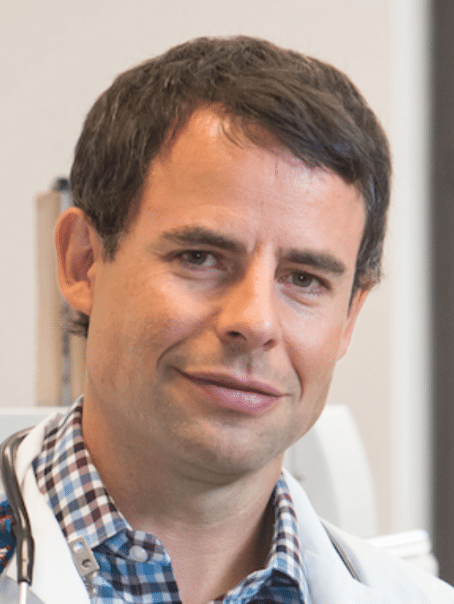
Brent Richards is a Professor, William Dawson Scholar and FRQS Chercheur Boursier Clinician Scientist at McGill University and a Senior Lecturer at King’s College London, UK. Trained in genetics, clinical medicine, endocrinology, epidemiology and biostatistics, Dr. Richards focuses on understanding the genetic determinants of common aging-related diseases. He and his colleagues have made important advances by identifying some of the genes that may cause these diseases, publishing over 240 scientific papers, with some findings appearing in Nature, Nature Genetics, JAMA and Nature Medicine. His H-Index is 87.
In recognition of his work, he has been elected as a Member of the Royal Society of Canada, College of New Scholars, and the American Society of Clinical Investigation, and a Canadian Institutes of Health Research Foundation Grant. Professor Richards practises endocrinology at McGill University
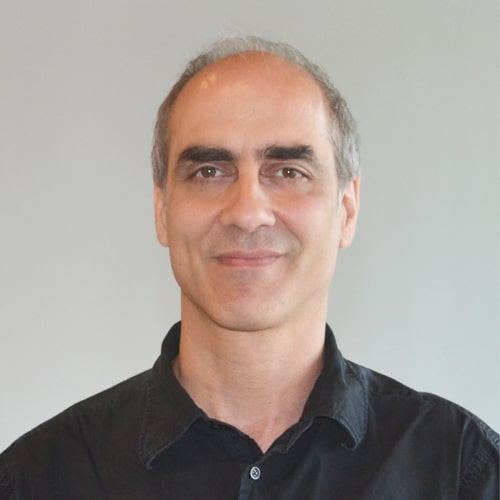
Vincent Ferretti is a researcher and the associate director of Cyberinfrastructure and Software Development at the CHU Sainte-Justine Research Centre. His research interests include the development of genome bioinformatics analysis methods and software to identify and characterize disease-causing genetic variations. His team develops software tools for the large-scale processing, research and visualization of genomic data in cloud computing environments.
Mr. Ferretti is leading the construction of several research and clinical infrastructures, including the CHU Sainte-Justine data lake, the Quebec Genomic Data Centre and the Centre québécois de génomique clinique. Mr. Ferretti also oversees the development of the INCLUDE (Down syndrome) and Gabriella Miller Kids First (Pediatric Cancer and Birth Defects) data portals, both funded by the U.S. National Institutes of Health. Prior to joining Sainte-Justine, Mr. Ferretti was Director of Computational Genomics at the Ontario Institute for Cancer Research in Toronto.

Jacques L. Michaud is a medical geneticist and researcher. His clinical and research interests focus on the genetics of neurodevelopmental disorders. His lab uses genomic approaches to identify genes involved in intellectual disability, autism, and epilepsy. His group discovered more than 25 genes associated with these disorders and made the initial observation that spontaneous mutations—not inherited from parents— represent a major cause of intellectual disability. His group also seeks to better understand the function of these genes and develop specific treatments for associated disorders by studying different model systems. In addition, Dr. Michaud works to develop, validate and offer genomic sequencing for the clinical investigation of rare genetic conditions at the Centre québécois de génomique clinique, which he manages.
Dr. Michaud is Director of the CHU Sainte-Justine Research Centre and Professor of Pediatrics and Neuroscience at the Université de Montréal. He holds the Jeanne and Jean-Louis Lévesque Chair in the Genetics of Brain Diseases and the Jonathan Bouchard Chair in Research on Intellectual Disability.

Lucy Gilbert, MD, was appointed Chair, Gerald Bronfman Department of Oncology (GBDO), Faculty of Medicine and Health Sciences (FMHS), McGill University on January 1, 2024.
Dr. Gilbert is a Professor in the Department of Obstetrics and Gynecology and the Gerald Bronfman Department of Oncology at McGill. She holds the Robert Kinch Chair in Women’s Health in the FMHS, a position dedicated to advancing research in the various and often underserved elements of women’s health, including gynecologic oncology and issues of women’s health in an aging population. She is the Director of both the Multidisciplinary Gynecologic Cancer Service and the Division of Gynecologic Oncology at the MUHC and holds an Associate Appointment in Gynecologic Oncology at St. Mary’s Hospital Centre
Dr. Gilbert is widely regarded for her research in gynecologic cancers. In 2002, she founded the Women’s Health Research Unit of Gynecologic Oncology and Gynecology at the MUHC, which has grown to be the largest clinical trials unit in Canada for gynecologic cancers. She heads the Detecting Ovarian and Endometrial Cancers Early using Genomics (DOvEEgene) program, which received $6.2 million in funding through the GAPP grant, supported by Genome Canada, Génome Québec and the MUHC Foundation.
In 2024, Dr. Gilbert was awarded the King Charles III Coronation Medal in recognition of her contributions to women’s health. She has twice been recognized by Québec Science magazine for her scientific discoveries, including the genomic Pap test she developed, which was named Découverte de l’année in 2018. In 2021, she was named one of the Top 25 Women of Influence in Canada for her pioneering work in women’s health research.
Dr. Gilbert has also served as a Member of the Board of Governors at McGill and sits on the Nominating, Governance and Ethics Committee (from June 2019 to June 2025).
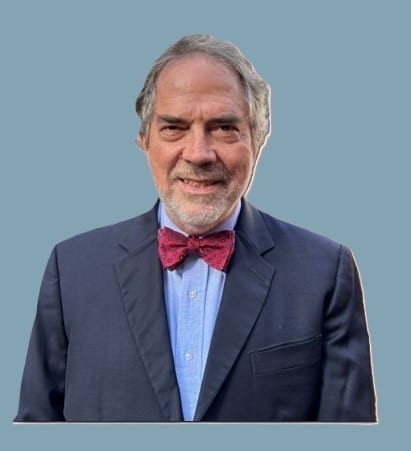
Dr. Jean Latreille is National Director of the cancerology directorate at the Ministère de la Santé et des Services sociaux (2012-). He is also a full professor (2005-) at the Faculty of Medicine and Health Sciences, Université de Sherbrooke and a hematologist-oncologist at Charles-Le Moyne Hospital under the CISSS de la Montérégie-Centre (1999-).
Previously, Dr. Latreille founded the Réseau d’échange d’information du Québec sur le cancer du sein (1993-2001) and participated in the development of Québec’s cancer control program and the Conseil québécois de lutte contre le cancer (2000-2004). He also taught and practised oncology through his roles as Director of the Medical Oncology Residency Program in the Department of Medicine at Université de Sherbrooke (2006-2017), Director of the Hôtel-Dieu de Montréal Oncology Centre (1989-1998), Medical Chief and Co-Manager of the Centre intégré de cancérologie de la Montérégie and Medical Director of the Montérégie Cancer Network (2000-2012).

Denis Ouellet, MSc, heads the laboratories and medical imagery directorate at the Ministère de la Santé et des Services sociaux du Québec, where he oversees the development of ministerial guidelines for the medical biology laboratory sector. He also contributed to the launch of the Réseau québécois de diagnostic moléculaire (RQDM), whose strategic committee is currently under the responsibility of his directorate.
In addition to his many years of experience in government, Mr. Ouellet has a longstanding interest in genomics as he holds a master’s degree in experimental medicine with a focus on human population genetics.
